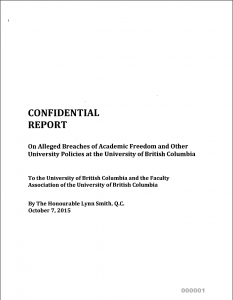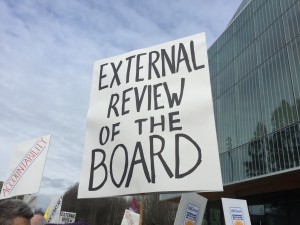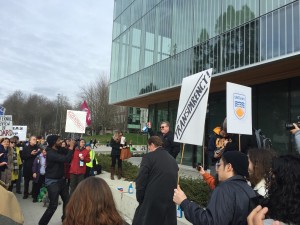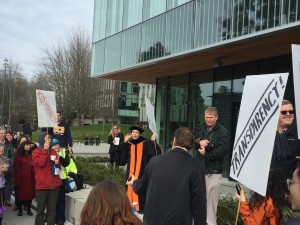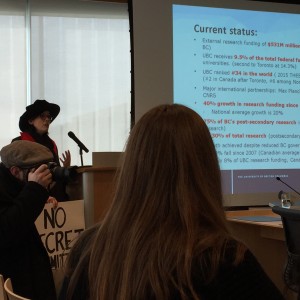In an era not too long ago, deans were able to assert their authority on most matters of governance, finance, management, and planning. Now, with credibility and legitimacy eroding, with shadow systems opening to scrutiny, can mere assertion of authority and excellence continue to pass for reality or truth at UBC?
So what part of the “Deans support UBC leadership” Op-Ed is believable or persuasive? Can the Deans support their “strongest” assertion?
Let’s test this assertion of commitment “to the pursuit of academic excellence” with a graduate program on campus:
- A graduate diploma mill, which in 13.5 years graduated 680 masters students but did not hire a single FT faculty member. Yes, 680 masters students and 0 FT faculty hired in 13.5 years.
- Instead is an exploitation Sessional labour—85% of all the courses—to teach at a piecemeal per student wage while their benefits start and stop at the term’s beginning and end. Staff members are hired to teach, who then double-up on their M&P jobs and displace the Sessionals from additional course assignments. The Sessionals are denied office space or worse:
- “Per the policy and requirements of space usage in [the academic building] for Sessional instructors, the [123] temporary office space, must be cleared of all personal belongings, borrowed library items and additional furniture installed.
- If, by Dec 1, 2015, the space is not restored to its original condition, items will be disposed of, and you shall be invoiced for the cost of clearing and removal.
- As requested, I attach the photos of the room in its original condition, taken prior to it being temporarily assigned to you in February 2015.”
- It took 8 years of agitation across two Faculties to complete a single Self-Study and Program Review. There are 7 administrators overseeing this Program but not a one could initiate a Review. Effectively, when it finally did happen, well, let’s just say that an expectation of arm’s length Reviewers was mocked.
- Did I mention that this was a revenue generating program and maybe there is something to shield from scrutiny? When in April 2015 the Associate-Provost reviewed the Office (yes, Office) that runs and manages the Program, he reported:
- “Shadow systems are used more than University systems which is concerning because the data in the shadow systems are not verifiable, and because of the opportunity for misuse of funds.”
- In the last four years, this program generated about $5.4m in total revenue but we cannot account for expenses or overhead “because the data in the shadow systems are not verifiable.”
- Where does the money go then?
- Is it just thrown at the deficit that’s run up elsewhere year after year?
- But still, where does the money go? Is it just paying for administrative bloat?
- Did I mention 680 masters student graduates and 0 FT faculty in 13.5 years?
If this is “academic excellence” we’d hate to see academic mediocrity or compromise…
Lowering the bar of excellence? No, just inflating the envelope of greatness.

 Follow
Follow
